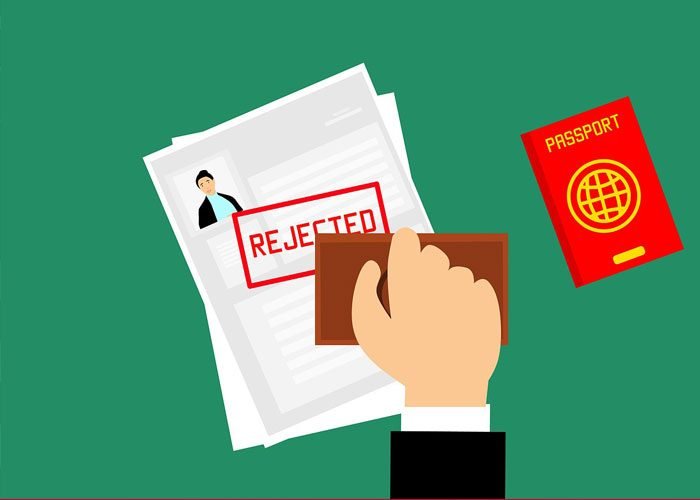Popular tags:
08
Feb
Why Canada declined 1.4m Temporary Visa applications under Federal Liberals
Temporary visa applications from 1.4 million applicants have been rejected since Canada’s national government came to control, as per new figures.
Of those denied a visa, many were suspected of terrorism, were known hoodlums/criminals or had involved in espionage, demonstrating how imperative a part visa officers play in protecting Canada.
Separating the numbers, there were seven candidates rejected for straightforwardly captivating in fear based oppression, nine for secret activities and 13 for undermining an administration by force.
Besides, 26 people were regarded a risk to Canadian security, five had occupied with indecent acts, and 79 were suspected of association with the involvement in terrorist of espionage organizations.
Some Quick Facts: Visa Rejection Figures
*Numbers concerned applications for study grants, temporary resident visas, and work licenses.
- Seven candidates had involved with terrorism
- Nine candidates had involved with espionage
- 26 candidates were considered perilous to Canadian security
- 125,027 candidates gave an inadmissible purpose behind visit
- 177,831 candidates neglected to answer questions honestly
- 930,576 candidates failed to persuade officers they would leave after visa expiry
The rundown demonstrates that some dangerous individuals endeavored to enter Canada amid the period secured by the statistics, between November 2015 and December 2016.
Deceptive nature was likewise a noteworthy patron, with almost 180,000 dismissals in light of a doubt of lying and about 8,000 more for distortion or withholding realities.
The dominant part of releases was a direct result of ‘constrained business prospects in your country of residence’, with more than 930,000 considered forbidden hence. This implies the competitor neglected to persuade the case officer they would leave Canada when their temporary visa terminated.
Canada has been applauded for its open state of mind to movement, particularly in the wake of Donald Trump’s endeavored crackdown in the U.S.
The new president brought on confusion by forcing an immigration ban on seven nations, and suspending the U.S. displaced person program, in an official request that accompanied no earlier cautioning.
From that point forward, the American courts have deferred the application, yet the Trump organization is increasing endeavors to get it restored.
The impact of the entire scene is lots of instability, with immigrants not knowing whether they will be permitted into America and outskirt specialists uncertain firstly how to decipher the ban, and also on the off chance that it is suspended or stays set up.
PM Justin Trudeau drove Canada’s response to the boycott, provoking features the world over with a tweet which read: “To that escaping abuse, fear and war, Canadians will welcome you, paying little heed to your confidence. Differences are our quality #WelcometoCanada.”
At that point, Immigration Minister Ahmed Hussen said those stranded at the Canadian outskirt would be given temporary residence.
Canada’s provincial politicians and mayors have been straightforward in their feedback.
A more grounded reaction from Canada against the U.S. appears to be probably not going to rise in light of up and coming arrangements concerning the North American Free Trade Agreement (NAFTA), which Trump has undermined to renegotiate.
Innovation organizations over the U.S. have broadly censured the request, with Google reviewing staff and Amazon promising to help with legal difficulties. Canadian tech organizations have participated in the judgment, in spite of the fact that there is a conviction they could profit by the ban by drawing in a swathe of new ability north of the border. Starbucks, in the interim, said it would open 10,000 opportunities everywhere throughout the world for displaced people.



